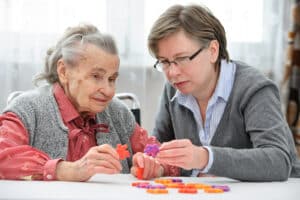
When your loved one was first diagnosed with dementia or Alzheimer’s disease, most likely at that time the symptoms were more of a nuisance than a danger. Early stages of dementia can include struggling to remember words, forgetting where items are, and needing assistance in some daily tasks like preparing a meal or taking care of the bills. As a caregiver, you were able to either step in and help or have your aging loved one move in with you so that you could help her age with dementia in a familiar environment surrounded by her family and loved ones.
But dementia is a progressive disease so at some point for many patients and their loved ones, those nuisances or minor issues grow into larger struggles that can make life more difficult and sometimes even dangerous. It is at this point that many families begin to research if a memory care facility may be the best place for their loved one.
A memory care facility will have trained staff and a community that is already created to be a safe place for your loved one. They have the resources and expertise that most families don’t have access to in their homes. How do you know if it might be time to find a memory care facility near you to care for your loved one? These five advanced dementia symptoms may be your indicators but each family has to make that decision on their own.
Personal Hygiene Issues
Many advanced-stage patients with dementia lose the ability to care for their hygiene needs. They may not be able to take showers or baths alone anymore, and they may need help using the toilet and cleaning up afterward. They may need to start wearing adult incontinence products because they no longer know when or how to get to the bathroom on time.
Wandering
Another common later-stage symptom of dementia is wandering. Your loved one may become confused as to where she is or how she got there and will wander off, trying to get her bearings. This dangerous symptom can lead to your loved one getting lost in an unsafe environment and hurting herself or others in the process.
Falling
Alzheimer’s disease can cause an individual to become shaky and lose her sense of balance, making falls a more likely occurrence. The chance of falling can make even a short walk to the kitchen a danger that could cause your loved one serious harm or even death.
Emotional Extremes
Some people who have dementia develop “sundowner syndrome,” where their emotions tend to get out of control during those hours when the day shifts into the evening. While not fully understood why this happens at this time of day, it can make your loved one have emotional outbursts that are fueled by anger or paranoia, making caregivers a target of those emotions. It can be a scary situation that might result in aggression.
Finally, consider your own stress levels and health. If both of these are not doing well, a memory care facility can help you keep your loved one safe and cared for while allowing you to stay healthy.
If you or an aging loved one are considering memory care in Sunrise Manor, NV, please contact the caring staff at Golden Brook today. Call (702) 931-0055.
Golden Brook Residential Care Home is an assisted living facility located in Henderson, Nevada. The facility offers a variety of services to seniors who need assistance with their activities of daily living. These services include 24/7 care, medication management, meal preparation, laundry, housekeeping, and much more. The facility also offers activities such as bingo, exercise classes, and gardening to promote social interaction among residents. Overall, Golden Brook Residential Care Home provides a safe and comfortable environment for seniors who need assistance but still want to maintain their independence.
Our caregivers and staff members treat our clients, residents, and their families with the utmost respect. Our focus is to provide the highest quality of care and service with compassion and dignity.
- Helping Seniors Simplify Their Surroundings - April 4, 2025
- Is Your Senior Ready for a Move to Assisted Living? - March 21, 2025
- How Medical Advocacy Helps Seniors Manage Chronic Conditions - March 14, 2025




